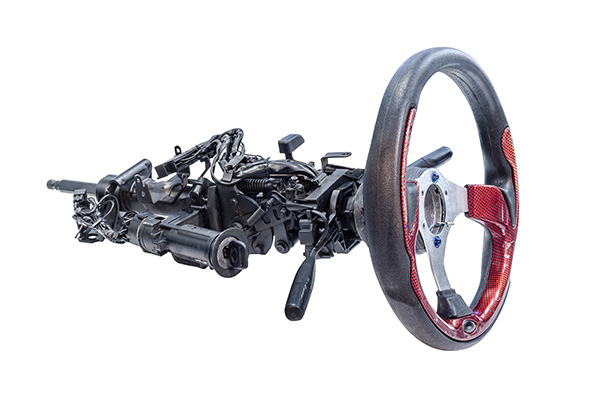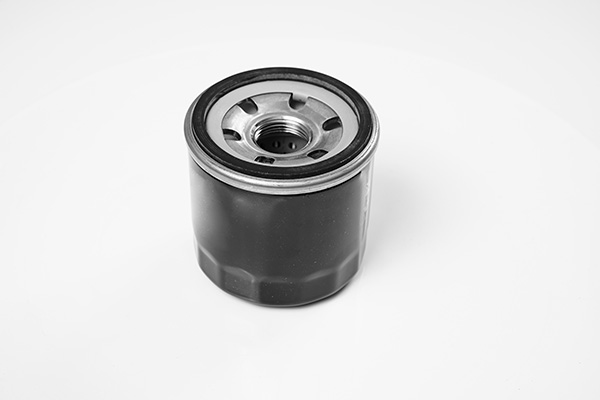Posted on 4/16/2025

If your steering wheel starts to shake the moment you press the gas, it’s not just an uncomfortable feeling—it’s a sign that something is off in your vehicle’s drivetrain or suspension. Vibration during acceleration doesn’t happen without reason, and while the issue could be minor, it’s often something that should be checked out before it gets worse. Let’s look at the most common causes of steering wheel vibration under acceleration and what they might mean for your vehicle. Unbalanced or Damaged Tires Tires are often the first place to look. If a tire is out of balance, improperly inflated, or damaged, it can create vibration that travels up through the steering system. During acceleration, any imperfection in the wheel or tire is more noticeable as weight shifts and speed increases. In some cases, the issue may come from a tire with uneven wear or a belt separation inside the tread. These problems can feel like a wobble o ... read more
Posted on 3/28/2025

Your car’s transmission does a lot more than just shift gears—it keeps your vehicle moving efficiently every time you drive. While most people know about changing transmission fluid, one component that doesn’t get much attention is the transmission filter. Not every car has one, but for those that do, it helps keep dirt and debris from circulating through the system, preventing unnecessary wear and possible damage. If you’re not sure whether your vehicle has a transmission filter or why it matters, knowing what it does and when to replace it can help you avoid bigger transmission problems down the road. What is a Transmission Filter A transmission filter is similar to an oil filter—it traps dirt, debris, and metal shavings that accumulate in the transmission fluid over time. This prevents contaminants from circulating through the transmission, which could otherwise cause excessive wear, overheating, or even failure of critical component ... read more
Posted on 2/28/2025

Getting into a car accident is stressful enough, but once the dust settles, one of the biggest concerns many drivers have is whether their vehicle will ever look the same again. After all, your car’s appearance isn’t just about looks—it also affects resale value, safety, and structural integrity. The good news is that with the right repair shop, your car can be restored to pre-accident condition, sometimes even better than before. However, not all repairs are equal, and the final result depends on the expertise of the technicians, the quality of parts used, and the repair process itself. How Skilled Technicians Restore Your Car’s Bodywork The first step in a collision repair is assessing the damage. Even if the damage looks minor, modern vehicles are designed with hidden impact-absorbing structures that may also need repairs. Skilled technicians will conduct a thorough inspection to determine if frame straightening, panel replacement, or struc ... read more
Posted on 1/31/2025

Ever wondered what happens to the old motor oil after your car’s oil change? While it might seem like a minor detail, the way used motor oil is handled plays a big role in environmental protection and sustainability. Given that a single gallon of improperly discarded oil can pollute up to a million gallons of water, proper disposal is essential. So, let’s explore what happens to used motor oil after it’s drained from your car and how repair shops ensure it’s dealt with responsibly. What Happens to Your Motor Oil After an Oil Change When you bring your car in for an oil change, the old oil is drained and replaced with fresh, clean oil. Over time, motor oil collects contaminants like dirt, metal particles, and chemical residues from the engine. This makes it less effective at lubricating and protecting your engine, which is why regular oil changes are crucial. But the question remains—what happens to the dirty oil once it’s removed ... read more
Posted on 12/20/2024
The engine air filter might not be the first thing that comes to mind when you think of vehicle maintenance, but it keeps your car running at its best. This simple yet vital part of your engine ensures that the air entering your engine is clean and free of contaminants. Over time, however, your air filter can become clogged, reducing its effectiveness and potentially causing engine problems. So, how do you know when it’s time to replace it? Here are the signs you need to watch for. Decreased Engine Performance One of the first signs that your engine air filter may need replacement is a noticeable drop in engine performance. When the air filter is clogged, it restricts the airflow to the engine, making it harder for the engine to breathe. As a result, your engine might experience sluggish acceleration or a decrease in overall power. You may also notice a rough idle or stalling, particularly when you’re stopped at traffic lights or in slow-moving traffic. I ... read more